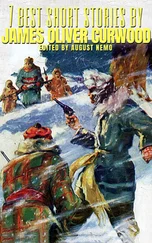No . What was it he had told him last week? It was the opposite.
Don’t try too hard. Information will come to you .
Don’t try too hard.
On the top shelf of his bookcase, next to a framed picture of their parents, both now deceased, sat a small photo of the two brothers. It was one of the few ever taken of them as adults: Charlie three inches taller, in a white T-shirt, with crew-cut blond hair, broad shoulders, angular facial features, a slightly puckish look; Jon darker-complected, smiling a little, strands of brown hair curling over his shirt collar. He had imagined that the renewed contact might mean a renewal of friendship, but it hadn’t. It was the way of his father, too—as if they had taught themselves not to get too close to anyone, even family members.
He thought about Africa, remembering the precise, pungent smell of the wind one night as he lay in a sleeping bag in an open field, breathing the scents of nomads’ camps—dung, sweat, smoke, porridge, fried kapenta—and the rotting carcasses from a faraway abattoir. In his last blog entry, Jon had written that he expected to have “new details” this week pertaining to his Africa stories—probably not a prudent move, in retrospect. It had all hinged on the call from his brother.
Across town, he knew, Melanie Cross was writing her blog, which she updated almost every night, usually just before midnight. The chances were good that she would make some barbed reference to Jon and his failure to provide “new details.” Like him, she assumed two identities as a journalist, in her case as a technology reporter for the Wall Street Review —where her stories were filtered through editors and fact-checkers—and as a freewheeling blogger, whose voice was smart, pithy, and sometimes recklessly provocative. Melanie Cross was an ambitious, well-traveled reporter who had a knack for tapping unlikely sources. They had been contributors to the same paper for about a year and briefly dated (“on a trial basis,” he told people). Despite her beguiling beauty, Melanie was wildly insecure and could become competitive about nearly anything. Lately she had been running entries in her blog every couple of days challenging Jon’s reporting on Africa, taking the sides of the high-profile aid donors and philanthropists he had written about.
Jon checked his caller I.D. and saw to his surprise that Melanie Cross had called him twice. Odd coincidences like that often seemed to happen with them. She hadn’t left a message, but her number showed up in the missed call record. Even when they’d been dating, she would not leave voicemails. Then he checked his e-mails and saw that Honi Gandera had written him back.
The eleventh and final name on his list. A last hope for reaching his brother.
JON MALLORY BLINKED AT the wall several times, then padded to the kitchen to heat a cup of tea. It was 1:23 A.M. He had fallen asleep at his desk, waiting for one o’clock so that he could call Honi Gandera in Saudi Arabia. It was eight hours later in Riyadh. The start of another working day.
The caffeine had a nice effect, making him want to be traveling somewhere, losing himself in the turns of a new story, not sitting at home waiting for information.
Another sip and Jon returned to the study, entered an international calling card number on his cell phone, punched in 966—the country code for Saudi Arabia—and 1, the city code for Riyadh.
After five rings: “Allo. Salam Alaikum.”
“Honi Gandera.”
“ Aywa .”
“Honi. Jon Mallory. In Washington.”
“Jon Mallory ! Greetings, my friend. Long time.”
“I know. How are you?”
“I am well. You?”
“Fine. Listen, I’m writing a story and I need to talk with someone in Riyadh. Some people there. I’d like you to sponsor me.”
Jon pictured him, his narrow face tightening slightly, his long nose wrinkling behind silver eyeglasses, an elfin smile edging a corner of his lips. Honi had been the editor of an Arabic-language Saudi newspaper for six or seven years but had resigned under pressure after writing editorials critical of Wahhabism and what he called the kingdom’s religious “fanatics.” He was an assistant editor now for a smaller, English-language journal. They’d met in 2005, when Jon had visited the Saudi capital for three days to write a story for The Weekly American about the “new Riyadh.”
“Which people?”
“My brother, actually.”
Honi laughed. “We’ve been through this before, my friend. Haven’t we?”
“Yes.”
“I mean, you may come here, certainly. But it does not mean you will find him.”
Vintage Honi , Jon thought. He was a small, deliberative man, who sighed excessively when nervous or anxious.
Other than as part of an approved group tour, Westerners could visit Saudi Arabia only if they had business or relatives in the kingdom. To travel on business, Jon needed a sponsor who could arrange an invitation through the Saudi Ministry of Foreign Affairs.
“Your brother is … difficult to find. A rather elusive character. You know that.” Honi sighed. “We had this conversation some months ago.”
“Yes. I know. But there’s a difference this time.”
“What is it?”
“I’ve been in touch with him recently. He’s part of the story I’m working on. An ongoing series of stories, actually.”
“Do you have an address? Or a contact?”
“Sort of, yes,” Jon said. Not technically true, although he did have the name of a Saudi contractor Charlie may have once done business with—the only lead he had been able to find after hours of Internet searches.
“Why don’t you give it to me and I’ll see what I can find.”
“Don’t think so. I’d rather try to find him myself,” Jon said, suddenly hearing Charlie in his head. You need to be a witness to something that hasn’t happened yet . “I’m going to the embassy in the morning. I can file a letter of responsibility and e-mail a copy to you. Okay? I promise I’ll make it worth your while.”
Honi sighed again. “You’re determined, my friend. And a little obsessive.”
“Yes. I know.”
“And when you get here, how will you find him? You’ll want my help, then, too?”
“Maybe.” Jon felt a rush of apprehension. He wasn’t sure what he would do, or where he would go, only that he needed to find him.
“Can you tell me what the story’s about?”
“Not in a sentence or two, no. But I will when I get there. I’d be glad to.”
“I’d like to hear it.”
“Okay. Good.”
Jon waited, sensing that a moment of silence would probably seal things.
“Well, okay. Let me see what I can do. How about if I call you tomorrow?”
“Okay. Great. Thanks, Honi.”
WHAT WAS THE story about? Jon Mallory pulled on his down jacket and walked out into the back yard, kicking his feet through the dead grass, enjoying the bracing cold air. He settled on the stone bench at the east edge of the yard, leaning against the oak tree. On one level, it was simply a human interest story—about people coping with the problems of poverty and disease. Problems that, incredibly, had only worsened over the past four decades despite nearly a trillion dollars of development aid funneling into the continent.
But there was another story, too, which his articles had only touched, and maybe it was the story his brother really wanted him to write: Over the last twelve months or so, a handful of Western foundations and relief organizations had poured billions of dollars into aid and development projects in unlikely regions of Africa. Some of the projects were fairly typical, others not. In the impoverished nation of Buttata, a substantial road-building operation was under way, which would eventually link dozens of mud-hut farming villages where the only modes of transportation at present were bicycles and donkey carts. In the Republic of Sundiata, which was virtually cut off to Western visitors because of ongoing ethnic and tribal conflicts, the government had partnered with Chinese charity groups to build health clinics, hospitals, and a wind farm in sparsely populated, remote regions of the country without electricity or running water. In a valley inhabited by goat-herders, what appeared to be a medium-hub airport was under construction, eight or nine kilometers from the vestiges of a village that, according to one account, had recently been decimated by a mysterious flu-like disease.
Читать дальше













